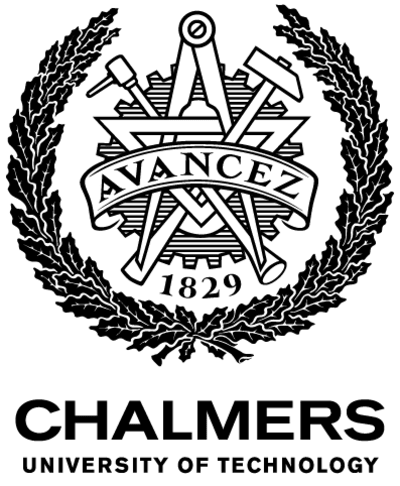
MSc in Mobility Engineering: Automotive Engineering
Chalmers University of Technology

Key Information
Campus location
Gothenburg, Sweden
Languages
English
Study format
On-Campus
Duration
2 years
Pace
Full time
Tuition fees
SEK 160,000 / per year *
Application deadline
Request info
Earliest start date
Request info
* tuition fees for non-EU/EEA students
Introduction
Every day, freight trains, trucks, airplanes, and ships transport enormous quantities of raw material and manufactured goods around the world, while billions of people travel for work and leisure in the same manner. On the Automotive engineering profile of this master's program, you will investigate how the growth of autonomous driving, electrification, and intelligent vehicle systems will challenge and change the industry in the coming decades.
By studying the Automotive engineering profile, you will receive a solid and holistic foundation in the automotive industry, including deep knowledge in areas like vehicle dynamics and aerodynamics, autonomous driving, active & passive safety, and propulsion. The industry is at a crossroads, and skilled automotive engineers, who can develop robust engineering solutions for transporting people and goods in a safe, sustainable, and cost-effective way are needed more than ever.
Automotive engineering research at Chalmers is carried out together with the Swedish Automotive industry and within several national centers and laboratories. You will study fundamentals including vehicle dynamics, vehicle aerodynamics, active & passive safety, and propulsion. Much of the work is focused on transport efficiency, automated driving, the safety of vehicles, and alternative propulsion systems.
The program as whole addresses the critical industries of aerospace engineering, automotive engineering, marine technology, and railway technology, with the option to specialize in one in particular. Graduates from the Mobility engineering program at Chalmers will be qualified to take up professional roles within research and development, design, and simulation of processes, systems, and parts of automotive, railway, aerospace, and maritime vehicles or other mechanical systems. Both the holistic approach and the possibility for in-depth studies provided in the program also offer a suitable background when aiming for a career or role within academic research, technical support, sales, manufacturing, or management at different levels.
Apart from the specific entry requirements for the whole program, students pursuing this profile will need to have prior knowledge of fluid mechanics, programming, and in the strength of materials, depending on the selected area of interest.
General entry requirements
A Bachelor's degree in Science, Engineering, Technology, or Architecture
To fulfill the general entry requirement for a Master's program at Chalmers (at advanced level/the second cycle), the prospective student must hold a degree that is equivalent to a Swedish Bachelor's degree (minimum 3 years, 180 Swedish higher education credits) in either Science, Engineering, Technology or Architecture.
- All applicants must document their formal academic qualifications to prove their eligibility. Only documentation from internationally recognized universities will be approved by the Swedish Council for Higher Education which manages the website universityadmissions.se.
- If an applicant is also a holder of a second degree such as a Master's degree, that may be to fulfill specific (course) requirements, it cannot be used to fulfill the general entry requirement on its own.
In your final year of Bachelor's Studies
Students in their last year of studies who don't yet have documentation of their soon-to-be-completed degree can be accepted.
Restrictions
Degrees that are constructed on one another cannot consist of the same course
Applicants who fulfill the general entry requirements for the second cycle (master’s level) programs and eventually specific entry requirements can be admitted to a master’s program. Applicants cannot be evaluated as unqualified in the qualifying academic merits which include courses from the program’s plan in those programs that they have applied for if that occurs.
Courses included in an earned first cycle degree (bachelor’s level) or professional qualification of at least 180 cr. (180hp) or the equivalent foreign qualification that are prerequisites for master’s qualifications may not be included in the higher qualifications. This also applies to prerequisite courses for master’s programs, regardless of whether they are included in the underlying qualification. *
*) Local Qualifications Framework for Chalmers University of Technology - first and second cycle qualifications.
Restrictions for Citizens from the Democratic People’s Republic of Korea (North Korea)
Chalmers cannot admit applicants with citizenship of the Democratic People’s Republic of Korea only to any program or course, due to the Council Regulation (EU) 2017/1509 of 30 August 2017 concerning restrictive measures against the Democratic People's Republic of Korea and repealing Regulation (EC) 329/2007.
For applicants with double citizenship of which one is of the Democratic People's Republic of Korea and the other of another country, the citizenship of the other country has precedence in this respect.